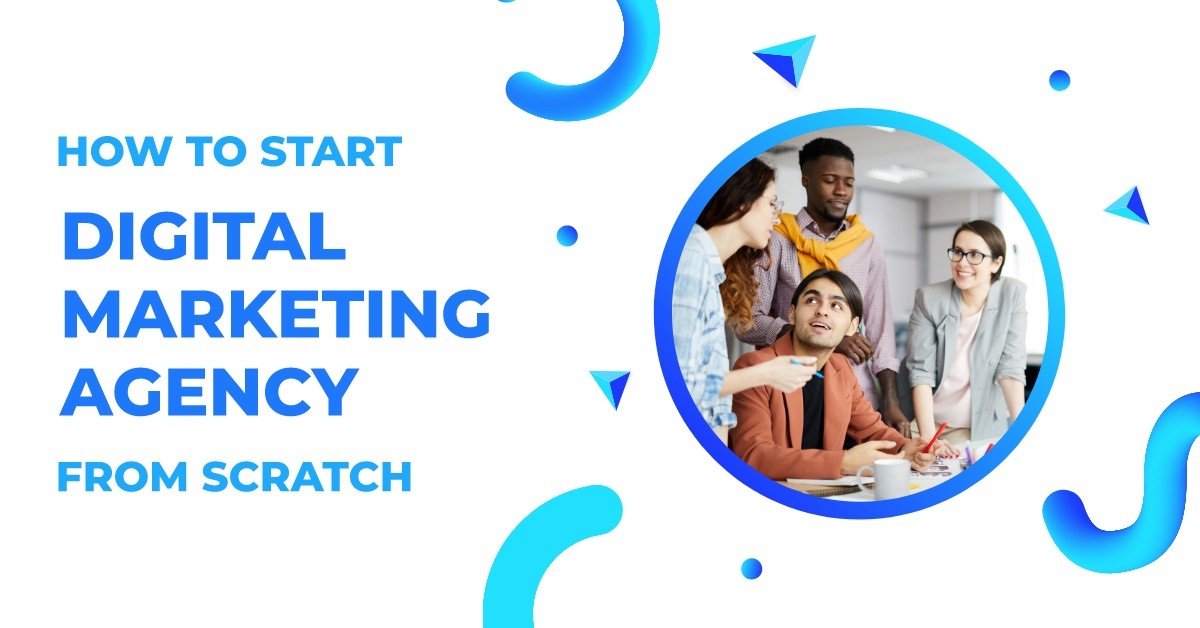In today’s digital age, businesses are increasingly relying on digital marketing to reach their target audience, generate leads, and drive sales. As a result, the demand for digital marketing services is booming, creating ample opportunities for aspiring entrepreneurs to start their own agencies.
Part 1: Understanding the Digital Marketing Landscape
Before diving into the nitty-gritty of starting a digital marketing agency, it’s crucial to have a solid understanding of the digital marketing landscape. This includes familiarizing yourself with various digital marketing channels, such as:
- Search Engine Optimization (SEO): The process of optimizing a website to rank higher in search engine results pages (SERPs) and attract organic traffic.
- Pay-Per-Click (PPC) Advertising: Advertising model where advertisers pay a fee each time their ad is clicked. Common platforms include Google Ads and Facebook Ads.
- Social Media Marketing: Leveraging social media platforms like Facebook, Instagram, Twitter, and LinkedIn to promote brands and engage with audiences.
- Content Marketing: Creating and distributing valuable, relevant content to attract and retain a defined audience and drive profitable customer action.
- Email Marketing: Sending targeted emails to prospects and customers to nurture leads and encourage repeat business.
Part 2: Defining Your Niche and Target Audience
One of the keys to success in the digital marketing industry is specializing in a specific niche or industry vertical. By narrowing down your focus, you can position yourself as an expert in that area and attract clients who value your expertise. Consider factors such as:
- Industry Vertical: Are you interested in serving clients in e-commerce, healthcare, technology, or another industry?
- Target Audience: Who are your ideal clients? Small businesses, startups, or enterprise-level companies?
- Unique Selling Proposition (USP): What sets your agency apart from competitors? It could be your expertise in a particular niche, innovative approach, or exceptional customer service.
Part 3: Creating a Business Plan
A well-thought-out business plan is essential for guiding your agency’s growth and attracting investors or lenders if needed. Your business plan should include:
- Executive Summary: An overview of your agency, its mission, goals, and key differentiators.
- Market Analysis: Research on the digital marketing industry, trends, competition, and target market.
- Services Offered: Detailed descriptions of the digital marketing services you’ll provide, including pricing and packages.
- Marketing and Sales Strategy: How will you attract clients and generate revenue? Outline your marketing tactics, sales process, and customer acquisition strategy.
- Operational Plan: Logistics such as office space, equipment, staffing, and workflow processes.
- Financial Projections: Revenue forecasts, expenses, and projected profits for the first few years of operation.
Part 4: Setting Up Your Agency
With your business plan in place, it’s time to bring your digital marketing agency to life. Here are the steps involved:
- Register Your Business: Choose a business structure (e.g., sole proprietorship, LLC, corporation) and register your agency with the appropriate authorities.
- Secure Funding: Determine how much capital you’ll need to launch and sustain your agency until it becomes profitable. Explore funding options such as personal savings, loans, or investors.
- Build Your Team: Assemble a team of skilled professionals, including marketers, designers, developers, and copywriters, who share your passion for digital marketing.
- Set Up Your Office: Whether it’s a physical office space or a remote setup, ensure you have the necessary infrastructure and technology to support your team’s work.
- Invest in Tools and Software: Identify and invest in essential digital marketing tools and software to streamline your processes and deliver results for clients.
- Develop Your Brand: Create a compelling brand identity that reflects your agency’s values, personality, and unique selling proposition. This includes designing a logo, website, and marketing materials.
Part 5: Acquiring Clients
Acquiring clients is perhaps the most critical aspect of building a successful digital marketing agency. Here are some strategies to attract and retain clients:
- Networking: Attend industry events, join professional associations, and leverage social media platforms to connect with potential clients and industry influencers.
- Content Marketing: Demonstrate your expertise and attract inbound leads by publishing high-quality content, such as blog posts, case studies, and whitepapers.
- Referral Program: Encourage satisfied clients to refer others to your agency by offering incentives or discounts for referrals.
- Cold Outreach: Reach out to prospects directly through email, phone calls, or LinkedIn to introduce your agency and its services.
- Partnerships: Collaborate with complementary businesses, such as web development firms or graphic design agencies, to offer bundled services and expand your reach.
- Client Retention: Focus on delivering exceptional results and providing excellent customer service to retain clients and foster long-term relationships.
Part 6: Scaling Your Agency
As your agency grows, you’ll need to focus on scaling your operations to meet increasing demand and maintain profitability. This may involve:
- Hiring More Staff: As workload increases, hire additional team members to ensure you can deliver high-quality services to clients.
- Expanding Your Service Offering: Diversify your offerings to meet the evolving needs of clients. This could include adding new services or specializing further within your niche.
- Investing in Automation: Leverage automation tools and technology to streamline repetitive tasks and improve efficiency.
- Improving Processes: Continuously evaluate and refine your agency’s processes to optimize performance and deliver better results for clients.
- Client Feedback: Solicit feedback from clients regularly to identify areas for improvement and ensure their needs are being met.
Conclusion
Starting a digital marketing agency from scratch is a challenging but rewarding endeavor. By understanding the digital marketing landscape, defining your niche, creating a solid business plan, acquiring clients, and scaling your operations, you can build a successful agency that delivers results for clients and generates sustainable revenue for years to come. With dedication, hard work, and a passion for helping businesses grow, the sky’s the limit for your digital marketing agency.
